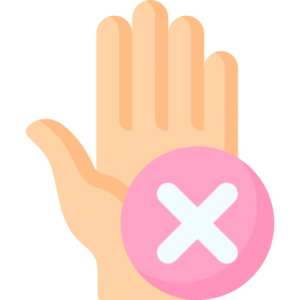- Casino News
- Industry News
Bulgaria Extends Minimum Self-Exclusion Period


Bulgaria Extends Minimum Self-Exclusion Period
Bulgaria has introduced a regulatory change affecting the country’s gambling sector by extending the minimum self-exclusion period from 30 days to 365 days. The decision by the National Revenue Agency (NRA) reflects an effort to strengthen responsible gambling policies. This adjustment restricts individuals voluntarily excluded from gambling activities while imposing stricter obligations on licensed operators.
Self-exclusion policies are designed to provide individuals with a structured way to prevent access to gambling platforms, either as a personal safeguard or due to regulatory mandates. With the extension of the minimum period, individuals who request exclusion will be prevented from gambling for at least one year, eliminating the option for shorter-term breaks.


The method for initiating self-exclusion remains unchanged. Individuals must submit a request to the NRA by email or in person at designated kiosks. The application requires personal identification details and must include an electronic signature, which may involve an additional cost depending on the provider. This requirement adds a financial and procedural step to the process, which may deter some individuals from registering.
Currently, approximately 54,000 individuals are listed in Bulgaria’s self-exclusion database. In addition to voluntary applicants, the registry automatically includes individuals receiving state welfare payments and those diagnosed with specific mental health conditions. This automatic inclusion expands the scope of self-exclusion beyond voluntary participation, aligning with broader consumer protection measures implemented by the NRA.
Operators face a BGN 5,000 (EUR 2,500) fine for a first violation. If a second offence occurs, the penalty increases to BGN 20,000 (EUR 10,200). Repeated breaches can result in the revocation of the operator’s gambling license. These escalating consequences highlight the regulator’s intent to enforce compliance and limit access for excluded individuals.
Operators must implement verification procedures that accurately cross-reference user data with the self-exclusion list. Introducing a longer exclusion period may require enhanced monitoring systems to ensure that previously excluded individuals remain restricted for the full duration of their registration.


One potential outcome is decreased voluntary self-exclusion registrations if individuals perceive the one-year commitment as excessive. Some may hesitate to enroll in the program if they anticipate wanting access to gambling services in a shorter timeframe.
On the other hand, the extended period may benefit individuals who require a more structured absence from gambling. By eliminating shorter exclusion periods, the policy ensures that those who register are fully removed from gambling environments for a significant duration, potentially reducing the risk of impulsive decisions to return prematurely.
Bulgaria’s policy aligns with a broader trend in regulatory frameworks where authorities seek to balance market expansion with consumer safeguards. Across various jurisdictions, gambling regulators are implementing stricter self-exclusion measures, reflecting a shift toward more structured player protection policies.
Bulgaria’s decision to extend the self-exclusion period to one year introduces a regulatory shift with potential long-term effects on players and operators. While the policy aims to enhance responsible gambling measures, its impact on exclusion participation rates remains uncertain. Online casinos must adapt to stricter compliance requirements, and the broader gambling market may see shifts in player engagement as individuals navigate the new framework. As regulations evolve, the industry must remain responsive to changing policies and their implications for market dynamics.
Top Online Casinos
10 Recommended Online Brands On CasinoLandia That Will Enhance Your Gaming Experience
No results were found!








